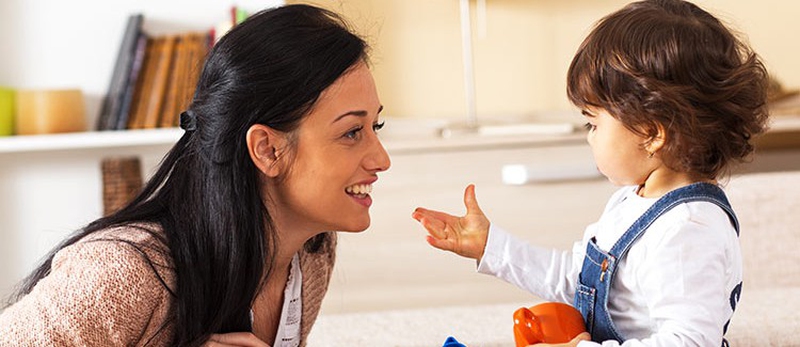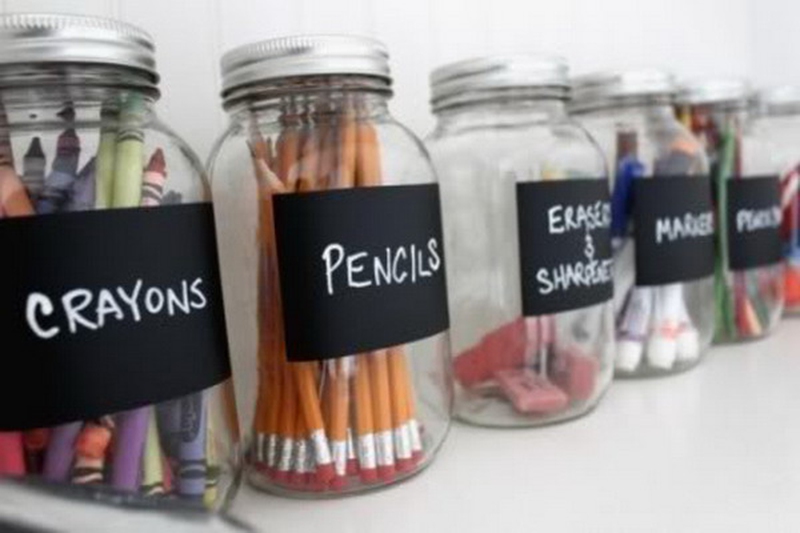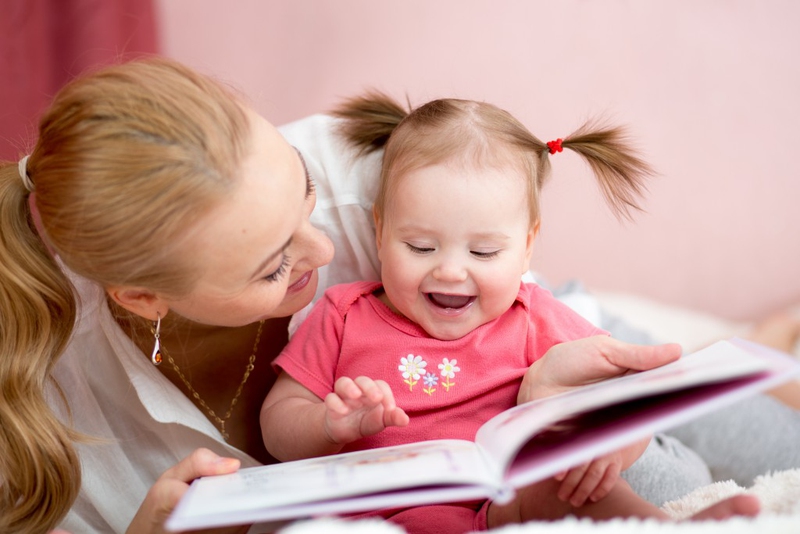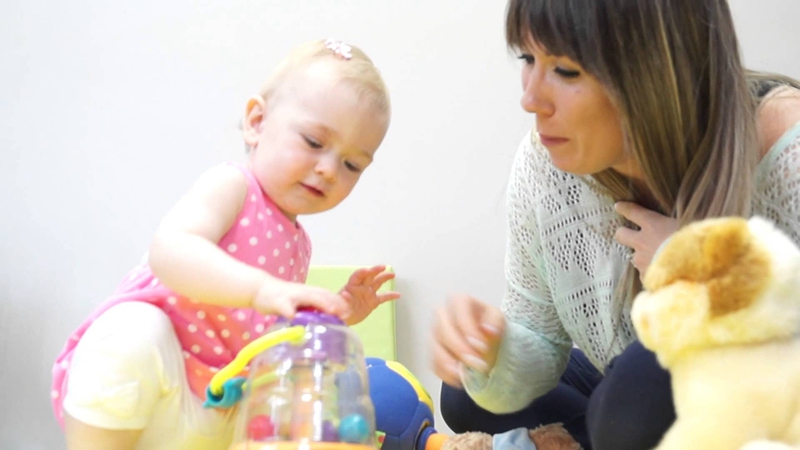There is a rapid expansion in the vocabulary of a toddler. Young toddlers both use real words and babble. Early communication and language skills are important for children’s development and later success in life. Communication and language skills include receptive language i.e., the ability to understand what others say, and expressive language i.e., the ability to express oneself using gestures, words or facial expressions.
This phase is important but know that language does not develop at the same rate or in same way in all toddlers. At this age, toddlers are getting aware of the power of words. They are learning that they can use words to express their feelings, get their needs met and to get attention.
Helpful Communication and Language Activities for Toddlers
Chat with your child: Chatting with your child is an excellent way to provide them with lots of examples of how to use words to get information and share ideas. The words spoken by adults to children form the language “input”, from which the children will from his/her own vocabulary. The more the input given by adults to children the more opportunities the children have to understand what is said by others and to learn the ways to express themselves.
Comment on or talk through routines. For example while washing hands, say “We are washing our hands.”
Comment on your child’s objects or actions and events. For instance, “Tom is drawing with the blue crayon.”
Ask questions and stop in between for answers.
Comment on events or actions: Commenting on events or actions is an excellent way to give children examples of using language in day to day activities and routines. Commenting involves describing what you are doing, thinking or seeing in the presence of your child. You may also describe what your child is seeing or doing.
Provide detailed descriptions of what your child or you are doing or seeing.
Comment or describe daily routines such as eating, drawing, things you see along the way, etc.
Provide description of how an object can be used.
Provide your child with words for different feelings: For instance, when your child is feeling frustrated you can give them words such as “angry”, “mad” and “frustrated”.
Use varied words while talking to your child: Talking to your child is one of the most important ways you can help them learn to develop strong language skills and is important language activities for toddlers. Use different types of grammar and words in your speech while talking to your child as it will help your child learn to use more varied and complex language.
During mealtime or playtime, introduce new vocabulary but make sure they can understand most of it.
Repeat these words in other contexts that are also applicable.
Give your child explanation of unfamiliar words with vivid gestures, etc.
Label it: Labeling an activity or object is a way to help your child learn the names of actions and objects. You can help your child learn the names of activities or objects by focusing on one activity or object at a time.
Use descriptors to make your child learn the names of various shapes, colors and sizes. For instance, “The yellow car is faster and bigger than the blue car.”
Gaze at or point to an object while naming it.
Say the names of new and familiar activities or objects.
Engage in objects or activities that interest your child: Engage your child’s attention in conversations about the activities or objects that have raised curiosity in them. By talking to your child about whatever that has captured their attention, you have an opportunity to support their language development by conversing about their interests, another one of the important language activities for toddlers.
Notice what the child’s focus is and ask open-ended questions such as “Why….?” ”What….?” And “How….?” Stop for a response.
Provide information about the activity or object that is the focus of your child by describing the activity or object.
Introduce your child to new words related to the activity or object of their focus.
Read interactively: One of the most important and effective ways to develop language skills in children is to read books to them. Encourage your child to participate in the story, expand on their responses and provide feedback.
Point to and label different objects in the story book.
Use an animated, expressive voice while reading.
Ask open-ended questions such as “Who”, “When”, “Why”, “What”, “Where”, and “How.”
While reading new words, ask your child to repeat it.
Describe new words and provide synonyms for them.
Rephrase and expand your child’s responses to questions.
Make connections between the child’s life and the book.
Encourage and praise your child for their responses.
At the end of the story, provide a recap, and repeat any new ideas or words.
Help your child tell a story regarding a special event: Your child is developing storytelling abilities, to support that you might ask questions such as, “What was there on the top of your birthday cake?” By supporting the ability to tell stories of your child you are helping them develop their language skills along with appreciation of stories.
Talk with your child about photos of the family events: This becomes an excellent source for stories and it will stimulate not only their language skills but also their memory.
Use props: Use objects such as old phones, dolls, puppets, cell phones, familiar books, play dough, pictures and felt board cutouts that spark conversations. These materials or objects can provide your child with opportunities to practice their language and communication skills.
While using a prop, ask your child open-ended questions such as “What”, “How” and “Why.” Stop for response.
Label props and explain their purpose or function.
Use props to engage your child in pretend play.
Introduce your child to new vocabulary.
Explain about different ways in which a prop can be used.
Engage your child in musical activities: You can help your child develop strong language and communication skills by incorporating music into your everyday activities and routines. This is another one of the important language activities for toddlers.
Make gestures or dance along with your kid while singing songs such as “The Wheels on the Bus” and “Twinkle Twinkle Little Star”.
Make new songs by changing the words of well known songs.
While singing known songs, stop in between for your child to fill in the blanks.
Use songs to narrate stories. Use props such as photos, puppets or pictures.
Let your child act out parts of the song that involve movement of body (for instance, “I am a little teapot.”)
Create little songs and sing during routines. For example, “Brush your teeth twice a day.”




View All Comments /Add Comment